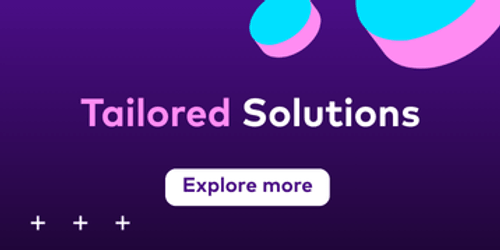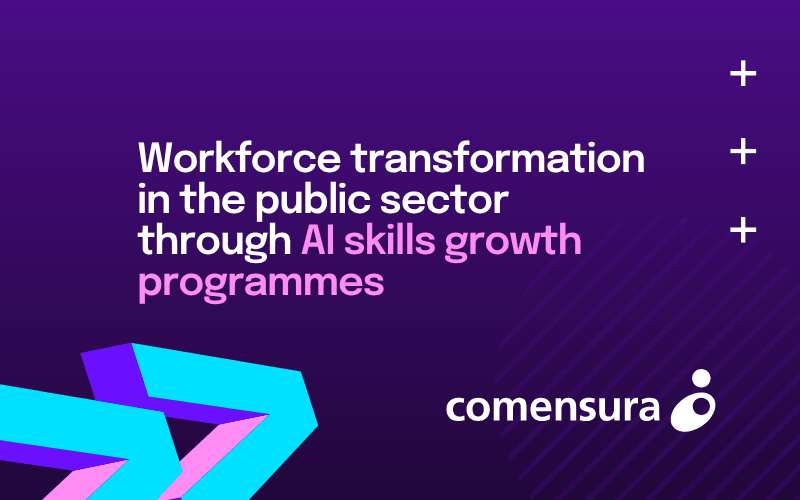

Author
Sales Director
2025-11-07
3 minutes
How important is employee vetting to combat deepfakes in recruitment?
Organisations face a new threat when recruiting new employees: deepfakes, AI-generated identities that can mean your new team member isn’t who they say they are.
Deepfake technology is becoming more sophisticated and easily available with recent research from Gartner predicting that by 2028, one in four candidate profiles worldwide will be fake. Employee vetting will be essential in combating this growing threat, and organisations need to prioritise putting in place rigorous partnerships with leading technology to safeguard their organisations from fraud, regulatory breaches, and reputational harm.
What is a deepfake?
A deepfake is an AI-generated identity designed to convincingly mimic a real person. While often associated with manipulated videos or images of famous people, deepfakes in the workforce can involve fake names, ages, credentials, backgrounds, or even entire fabricated personas that pass as authentic candidates during recruitment.
What are the main reasons people create deepfakes in the workplace?
-
Overemployment (“Daylighting”): Working multiple remote jobs simultaneously under different identities to hide overlap and maximise income, at the expense of productivity for their employers.
-
Bypassing background checks: Falsifying experience or qualifications to secure positions they’re unqualified for or pass background checks.
-
Industrial espionage: Infiltrating organisations for access to sensitive data or proprietary technology.
-
Criminal acts: Gaining entry to commit fraud, steal data, or facilitating illegal activities undetected.
What are the risks of deepfakes in the workplace?
Deepfake-enabled fraud is the leading risk that most organisations are worried about. Sectors such as finance are being targeted at an alarming rate, with deepfake fraud attempts growing in the finance sector by 2,137% in the last three years.
In the public sector, deepfake candidates pose a significant risk by potentially gaining unauthorised access to sensitive government data and critical infrastructure, undermining national security and public trust.
Organisations can suffer financial loss by paying full-time salaries to part-time workers hiding behind fake profiles. More critically, employing individuals who bypass vetting checks jeopardises compliance, exposes sensitive data, and could result in regulatory fines or legal actions. The reputational damage and erosion of client trust are often irreversible, making prevention vital for business continuity.
Worse than that, should they have passed criminal background checks in order to obtain access to vulnerable individuals, such as children, the consequences could be horrific.
What is the employee screening and vetting process?
Vetting refers to the systematic assessment of a candidate’s identity, qualifications, and background before hiring.
The screening and vetting process involves a series of vetting checks, such as verifying documents, conducting interviews, and confirming credentials. For regulated industries, and public sector organisations employment vetting is especially important to ensure only qualified, authentic individuals are entrusted with sensitive responsibilities.
Thorough vetting checks are key to protecting both organisations and clients from the risks posed by deepfakes.
Outsourcing vetting and checking new employees
Many organisations now rely on external employee vetting services to manage the complexity and scale of modern workforce screening. Outsourcing vetting and checking offers several benefits:
-
Access to specialised expertise and technology for detecting deepfake artifacts.
-
Improved efficiency and accuracy in employment vetting processes.
-
Reduced compliance risk through robust, standardised procedures.
-
Greater peace of mind for HR teams, senior management, and business owners, enabling them to focus on strategic priorities.
Choosing an employee vetting and checking partner
When selecting a provider for employee vetting services, there are key factors to consider:
-
Industry experience: Proven track record in your sector or similar sectors.
-
Technology capabilities: The ability to use the latest authentication and AI-driven screening tools.
-
Human oversight: A commitment to combining technology with expert judgment for nuanced decision-making.
-
Compliance and trust: A track record of stringently following industry standards and data protection regulations.
As deepfake technology continues to evolve, organisations of all sizes and in all sectors need to be vigilant and adapt their employee vetting strategies. The most effective defence combines advanced screening and vetting processes with human intuition and industry-specific awareness.
Partnering with a reliable employee vetting services provider helps organisations maintain trust, security, and compliance. Most importantly, it ensures that only real, qualified and safe individuals enter the workforce.
Contact Comensura for trusted employee vetting services
Ready to safeguard your organisation from deepfake risks and ensure your workforce is compliant and secure?
Comensura delivers tailored employee vetting and screening services for both public sector agencies and private sector businesses. Our expertise, advanced technology, and commitment to compliance help you confidently build a trusted team.
Insights to drive workforce performance
Workforce insights in your inbox
Sign up for our newsletter with the latest workforce management news, insights, analysis and more.
United Kingdom
First Floor, Mulberry House
Parkland Square
750 Capability Green
Luton, LU1 3LU
Australia
Suite 1403
Level 14, 309 Kent Street
Sydney
NSW 2000










